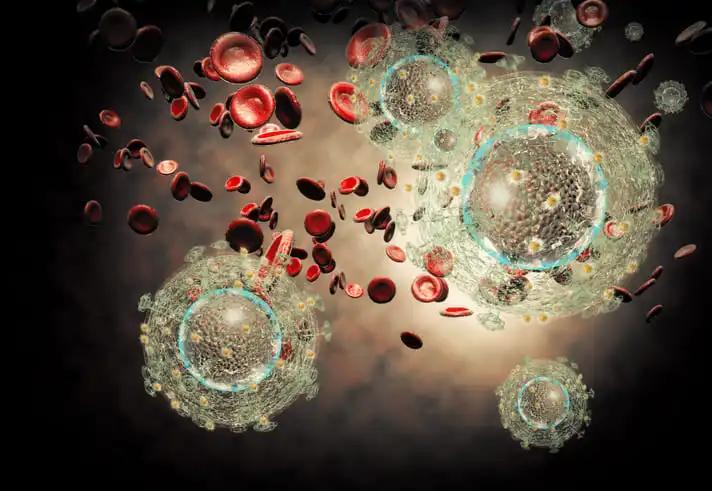KEY TAKEAWAYS
- This post hoc analysis of the phase III ASCENT study was conducted to evaluate the relationship between neutropenia or diarrhea and clinical outcomes in mTNBC pts.
- The study reported that grade ≥3 neutropenia or grade ≥2 diarrhea did not adversely impact the clinical outcomes in patients with mTNBC.
Sacituzumab Govitecan (SG) is an antibody-drug conjugate targeted at Trop-2. It has gained approval in several nations for patients (pts) who have previously received treatment for metastatic triple-negative breast cancer (mTNBC). In the United States, it is approved for pts with previously treated hormone receptor-positive (HR+) and HER2-negative (HER2-) metastatic breast cancer. SG is known for having a manageable safety profile, with the most frequent grade ≥3 adverse events (AEs) being neutropenia and diarrhea. This study investigated the connection between these two AEs and the patients’ clinical results with mTNBC.
Patients diagnosed with mTNBC and treated with SG as part of the phase III ASCENT study were enrolled in this analysis. A post hoc study was carried out to assess the association between AEs (neutropenia [including cases of febrile neutropenia] or diarrhea, analyzed separately) and clinical results (progression-free survival [PFS] and overall survival [OS]).
Among the 254 pts treated with SG in this study, the baseline characteristics were comparable to those who did and did not encounter neutropenia or diarrhea. Specifically for SG, the occurrence of grade ≥3, neutropenia was 54% (n=138), while grade ≥2 diarrhea was observed in 32% (n=81) of pts, and there were no grade 5 events. The study demonstrated the association between grade ≥3 neutropenia and grade ≥2 diarrhea with outcomes in SG pts.
This post hoc analysis of the ASCENT study reported that the clinical outcomes of pts with previously treated mTNBC who had or had not encountered adverse events of grade ≥3 neutropenia or grade ≥2 diarrhea were in line with the outcomes observed in the overall intention-to-treat population. The occurrence of these AEs did not affect the patient outcomes. Vigilant monitoring and timely intervention, employing management approaches consistent with established guidelines for neutropenia and diarrhea, facilitated prolonged treatment durations and sustained benefits from SG.
Clinical Trial: https://classic.clinicaltrials.gov/ct2/show/NCT02574455
Azambuja, E.D., Jacobs, F., Lambertini, M., Rugo, H.S., Bardia, A., Tolaney, S.M., O’Shaughnessy, J., Delaney, R.J., Zha, S., Liu, J., Valdez, T., Kalinsky, K., Agostinetto, E. RELATIONSHIP OF DIARRHEA AND NEUTROPENIA EVENTS WITH OUTCOMES IN PATIENTS (PTS) WITH METASTATIC TRIPLE-NEGATIVE BREAST CANCER (MTNBC) TREATED WITH SACITUZUMAB GOVITECAN (SG): POST HOC ANALYSIS FROM THE PHASE 3 ASCENT STUDY. Annals of Oncology (2023) 8 (1suppl_4): 101223-101223. 10.1016/esmoop/esmoop101223



